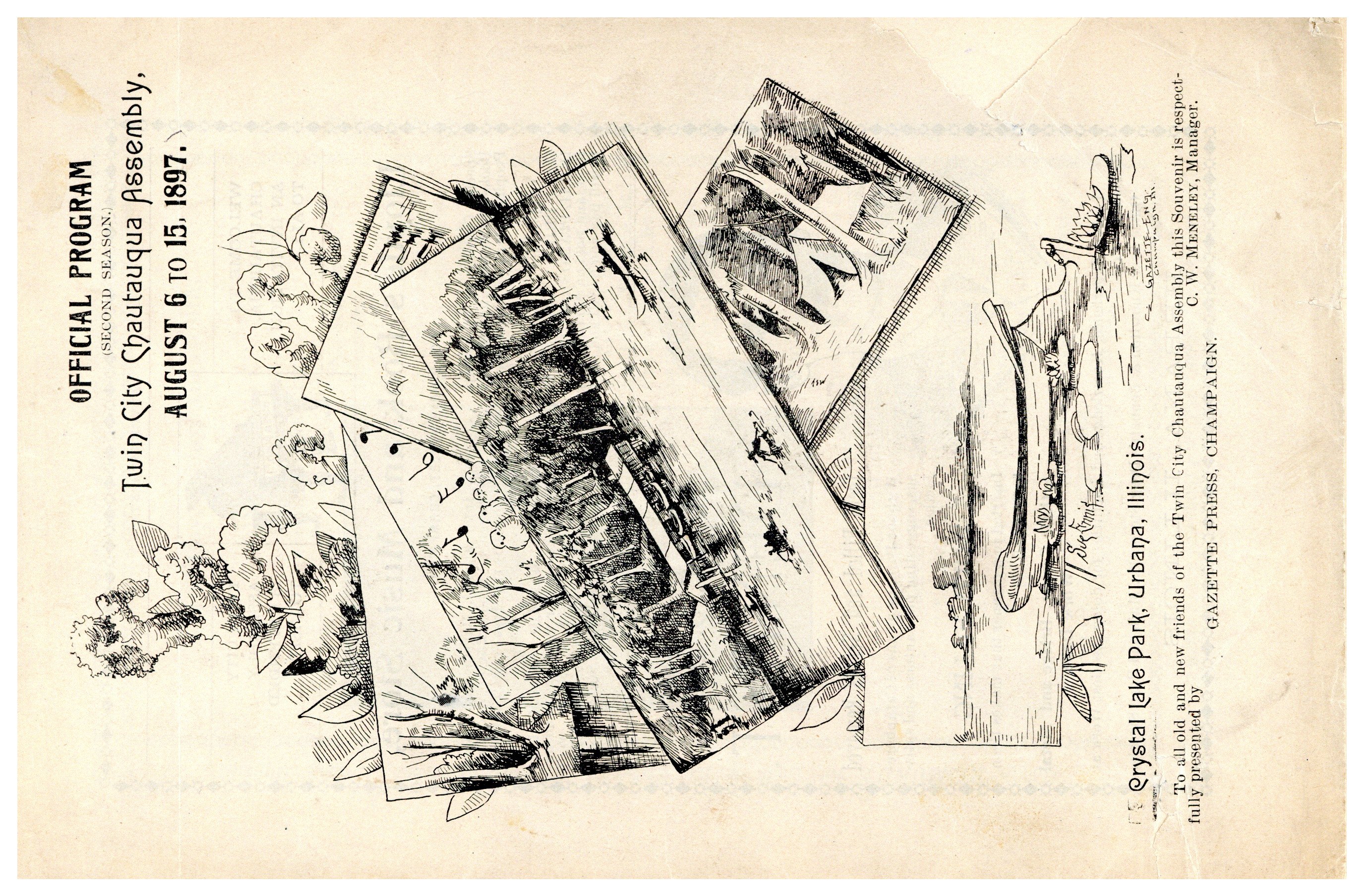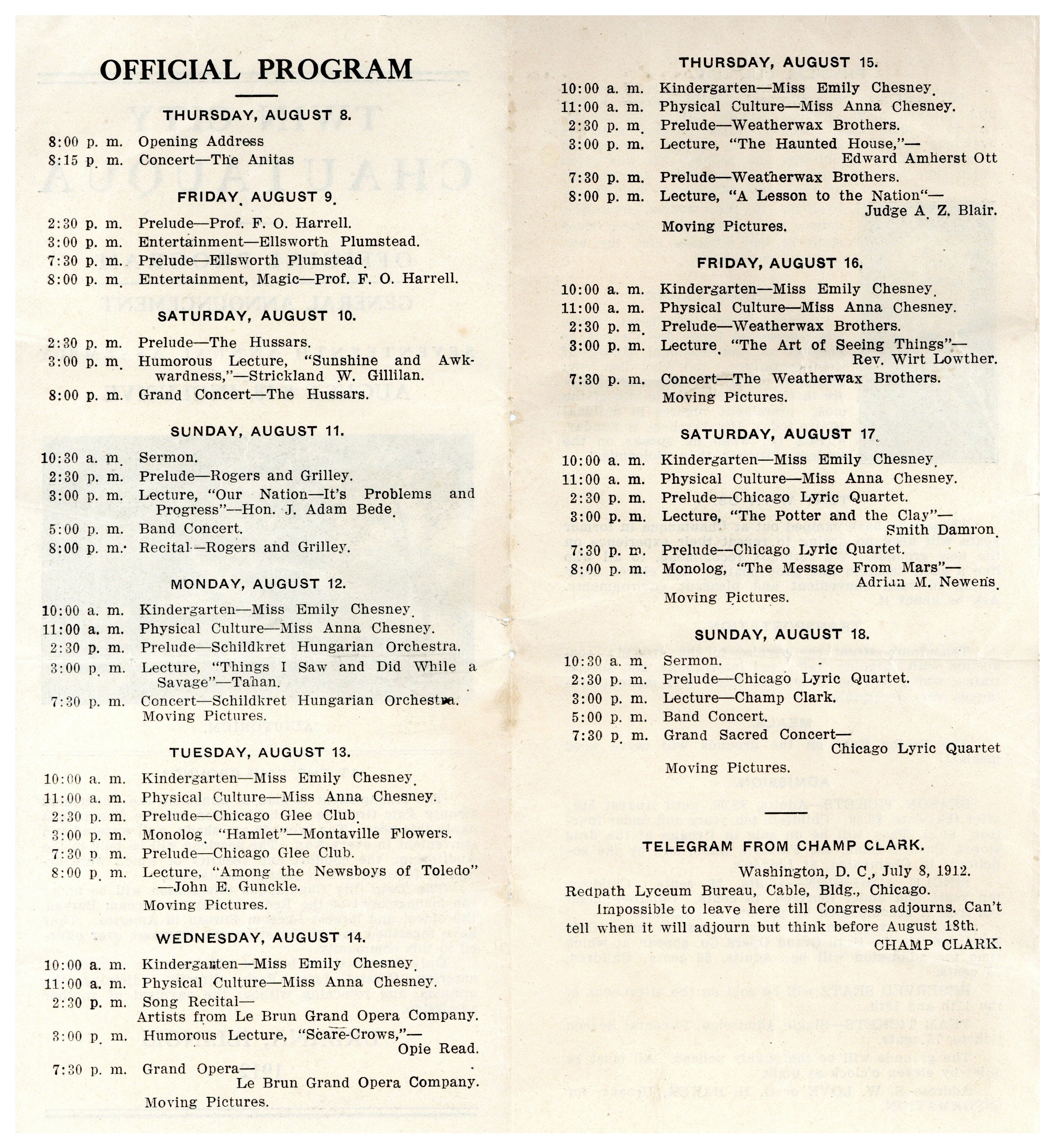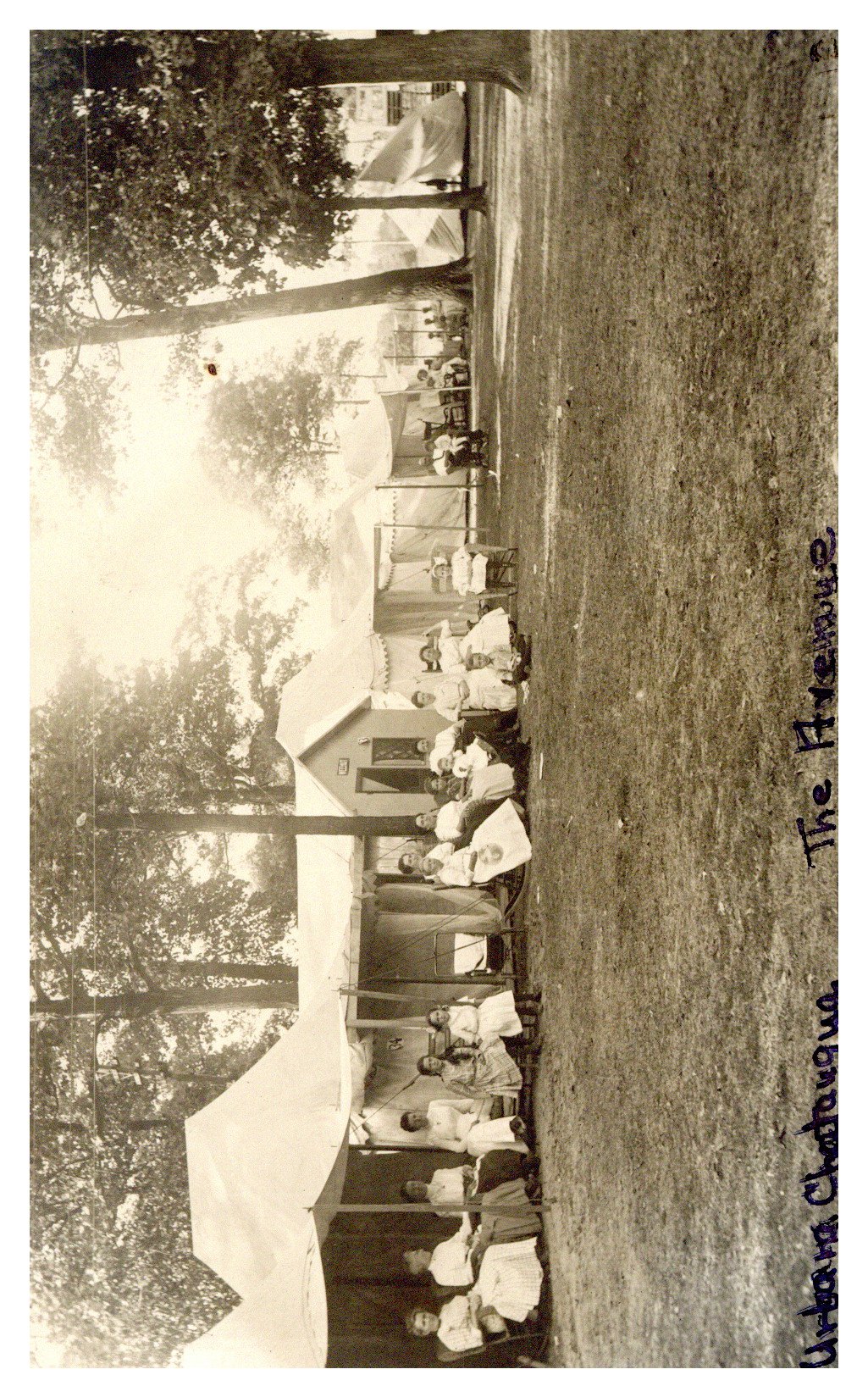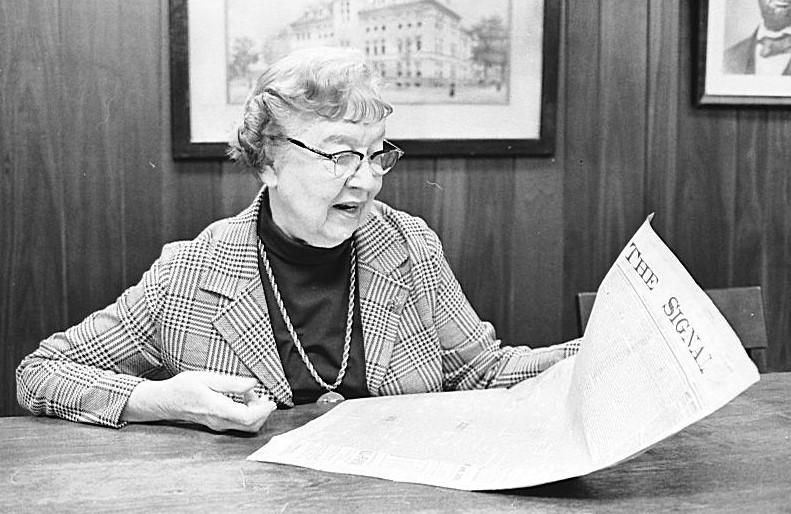
Described by U.S. President Theodore Roosevelt as the “most American thing in America,” Chautauqua was an adult education and social movement popular in the late 19th and early 20th centuries that brought individuals together for self-improvement. An “educational summer camp,” the Chautauqua offered entertainment in the forms of lectures, sermons, performances, outdoor study, and camping – all at minimal cost.
The first Twin-City Chautauqua was held at Crystal Lake Park on August 14-23, 1896. Though the first Chautauqua was not a financial success, it was popular enough to continue through the 1920s. By 1909, more than 5,000 people were attending every year. National speakers such as Jane Addams, William Jennings Bryan, Booker T. Washington, and Helen Keller spoke at the Twin-City Chautauqua. It is estimated that William Jennings Bryan alone brought in over 10,000 people to hear his speech “The Ways of the Old World.” The Chautauqua movement hit its height around 1915 and began its decline in the 1920s and 1930s as radios and movies became popular and transportation and communication became more accessible.

Nelle Carpenter, a former The Urbana Free Library librarian and founder of the Champaign County Historical Archives, remembers the Twin City Chautauqua.
“One of the great things to look forward to when I was a youngster was camping at Chautauqua. It happened every year but we got ready long before the day of moving. Family tents were put up, the furniture for a ten-day stay was chosen, clothes were definitely chosen with great care and children were tiptoe with excitement… [T]ry to imagine what it meant to have constant stage entertainment on every afternoon and evening and also nickels to spend every single day and on Sunday a dime! There was a kindergarten playground every morning except Sunday for the preschool age children and there were supervised games and simple handicrafts for the older children. We were all allowed to attend any of the programs in the “Big Tent” but behavior of the best was the first and inflexible rule.”


- Sherrie Bowser
Archives Librarian
